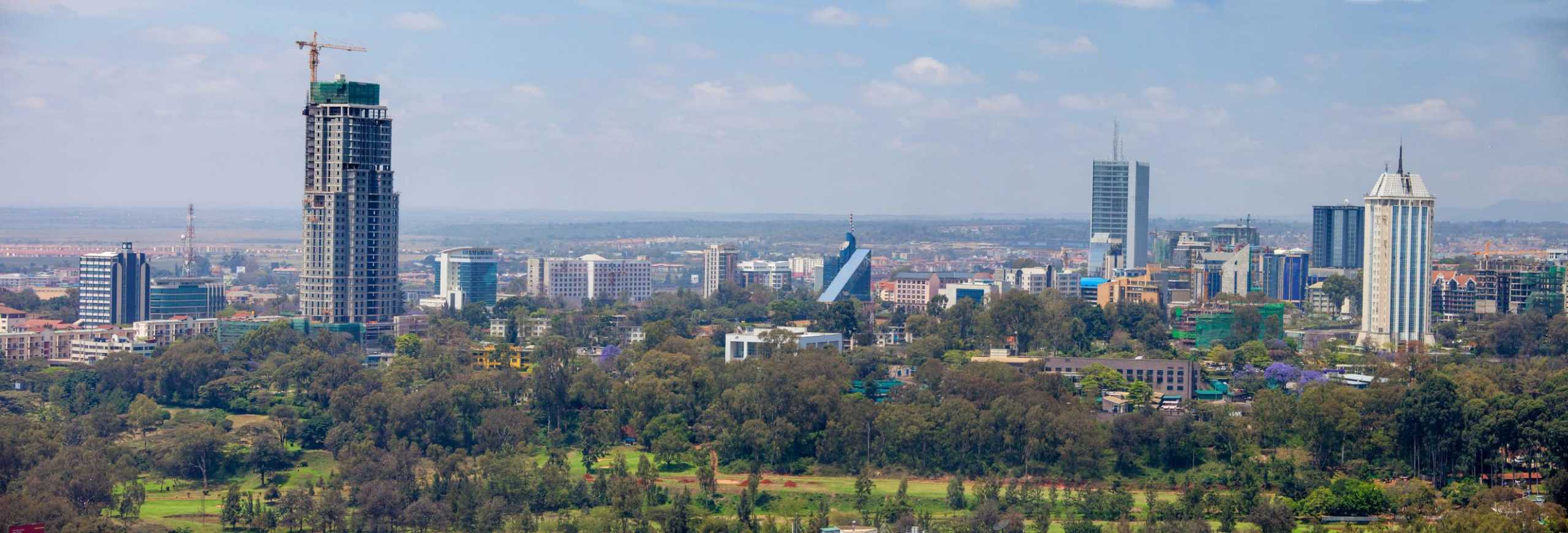CHILD CUSTODY & GUARDIANSHIP
Guardianship of Children in Kenya

What is A Guardianship Order issued by the Court?
A Guardianship order is issued by the children’s court pursuant to S 125 of the Children Act, 2022. The Children Act provides that a guardian may be appointed in respect of any child who is resident in Kenya whether or not the child was born in Kenya or is a Kenyan citizen.
What is the Role of a Court Appointed Guardian?
A guardian bears legal responsibility for the child including responsibility for custody, care, schooling and control of the child.
Who may Apply for Court Ordered Guardianship?
A person who has parental responsibility for the child or someone with a legitimate interest in the welfare of the child may go to court to apply for a guardianship order over the child.
A legal guardian in Kenya must be a Kenyan Citizen. The previous Children Act, 2001 which was repealed in 2022 provided for both foreigners and locals to be guardians however the new law mandates that only a Kenyan citizen can be appointed as a guardian.
Legal guardianship of a foreign child may be granted if the child already has residence in Kenya even if the child is not a Kenyan citizen.
Joint guardianship of a child occurs when more than one guardian is appointed or one guardian is appointed to share guardianship with a present parent.
Can a legal guardian remove the Child from Kenya?
Section 121 of the Children Act 2022, provides that a legal guardian who is not a parent to the child, cannot remove the said child from Kenya without obtaining an order of the court. Thus if the intention is to remove the child from Kenya, additionally a residence order can be sought from the Court, and such leave shall be granted only in exceptional circumstances.
Provision for Guardianship of a Child in a Will (Testamentary Guardian)
A parent may provide for the appointment of a testamentary guardian under the terms of their will and this is a sensible course of action for any parent to a child below 18 years of age. Guardianship of a child in the case of a parent’s death provides that the testamentary guardian shall be a guardian of the child with the role of care and control of the child. It is also advisable that the person designated as a testamentary guardian in turn prepares a will nominating a replacement guardian in case they die to avoid leaving the child without care.
The testamentary guardian may be the sole guardian of the child if the sole parent dies and there is no other parent. Alternatively, the testamentary guardian may be the joint guardian if only one parent dies leaving a surviving parent.
If the surviving parent is unhappy with the person named as a testamentary guardian, they may bring an application in court opposing that testamentary appointment under the Will of the deceased parent of the child.
Court Appointed Guardian for a Child
The court may appoint a guardian on the application of an intended guardian where the parent of the child is dead or cannot be found and no other person has responsibility for the child. The purpose here is to ensure that a willing party is named by the court as sole or joint legal guardian fir the child so that the child is not abandoned and to avoid a situation where the child lacks parental care and responsibility.
Court Procedure in Appointing a Legal Guardian
Getting guardianship of a child entails the intended guardian making an application by the appropriate court document to be appointed as guardian. This shall be accompanied by their consent and affidavits. The court will require that a Children’s Officer – who is a government officer- in the locality where the child lives to make an investigation into the living circumstances of the child as well as ascertain that the applicant is fit to be appointed a guardian. Thus one must identify the local sub county children’s office nearest to where the child lives and serve the court order on the children’s office directing the office to prepare a children officer’s report. Either before or after the children officer’s report is prepared, a hearing will take place in which the Applicant will demonstrate that they are an appropriate person to be appointed as the child’s guardian.
If the court is satisfied it will grant legal guardianship to the Applicant.
Duration of Guardianship
A guardianship order lasts until the child is 18 years old or until the court issues another order revoking the guardianship on the application of any person with a valid interest in such revocation.
Role of a Child’s Legal Guardian
A guardian to a child may be appointed to take care of the child or the property of the child or both.
Thus the guardian appointed over the child is responsible to ensure that the child gets adequate food; shelter; clothing’; moral guidance; education; medical care; emotional support and all other rights that a child has to ensure their all rounded growth. If the child has property, the guardian is entrusted to ensure that property is not wasted and that the property is utilised solely for the child’s benefit.
A guardian may also designate under their will a person to be appointed as a replacement guardian should they die living the minor without a person to take care of them.
Appointment of a Guardian after the Age of 18
A guardian may be appointed for a person over the age of 18 years in two circumstances: where the person requires one in the terms of the Mental Health Act and the applicant petitions to be appointed guardian of the person that needs the support to take care of them and their estate.
A guardianship order over a child beyond 18 years may be extended if the court deems this fit for example the continued guardianship of a severely disabled child turning 18 years or if the child over 18 is a special needs individual.
An applicant may also apply for legal guardianship over an adult in order to provide the child over 18 years with a legal next of kin. For instance, an abandoned child when they grow to be an adult without family, may want the person that cared for them to be appointed as a legal guardian. The appropriate application may then be made to the court
The provision of general information herein does not constitute an advocate-client relationship with any reader. All information, content, and material in this article are for general informational purposes only. Readers of this article should get in touch with us/a qualified advocate to obtain legal advice with respect to any particular legal matter.
RELATED ARTICLES



